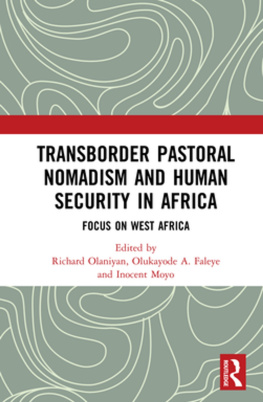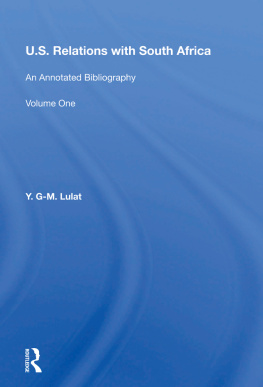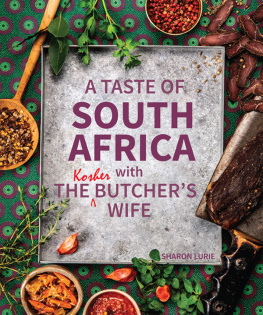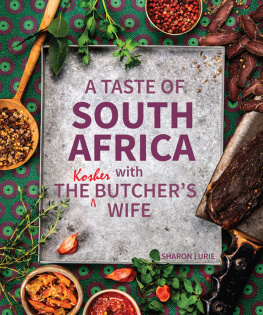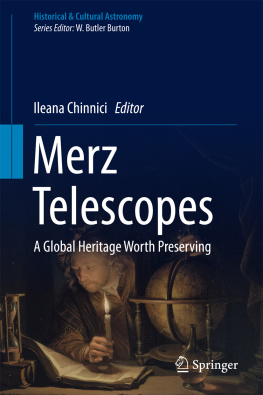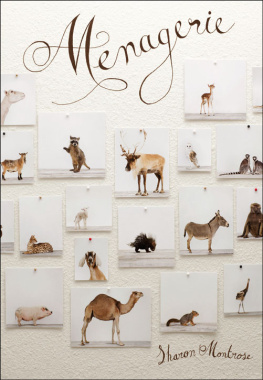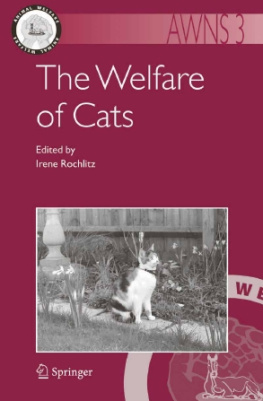
Totemism and HumanAnimal Relations in West Africa
This book explores humananimal relations amongst the Bebelibe of West Africa, with a focus on the establishment of totemic relationships with animals, what these relationships entail and the consequences of abusing them. Employing and developing the concepts of presencing and the ontological penumbra to shed light on the manner in which people make present and engage in the world around them, including the shadowy spaces that have to be negotiated in order to make sense of the world, the author shows how these concepts account for empathetic and intersubjective encounters with non-human animals. Grounded in rich ethnographic work, Totemism and HumanAnimal Relations in West Africa offers a reappraisal of totemism and considers the implications of the ontological turn in understanding humananimal relations. As such, it will appeal to anthropologists, sociologists and anthrozoologists concerned with humananimal interaction.
Sharon Merz is a senior anthropology consultant for SIL International. She also lectures in anthropology at Moorlands College, Christchurch, UK, and at the Theological College of Northern Nigeria, Jos, Nigeria.
Multispecies Encounters
Series editors:
Samantha Hurn is Associate Professor in Anthropology, Director of the Exeter Anthrozoology as Symbiotic Ethics (EASE) working group and Programme Director for the MA and PhD programmes in Anthrozoology at the University of Exeter, UK. She is the author of Human-Animal Farm: A Multi-Sited, Multi-Species Ethnography of Rural Social Networks in a Globalised World, Humans and Other Animals: Human-Animal Interactions in Cross-Cultural Perspective and editor of Modern Myths, Unusual Heritage, and Anthropology and Cryptozoology: Researching Encounters with Mysterious Creatures.
Chris Wilbert is Senior Lecturer in Tourism and Geography at the Lord Ashcroft International Business School at Anglia Ruskin University, UK. He is the co-editor of Autonomy, Solidarity, Possibility: The Colin Ward Reader, and Technonatures: Environments, Technologies, Spaces and Places in the Twenty-first Century.
Multispecies Encounters provides an interdisciplinary forum for the discussion, development and dissemination of research focused on encounters between members of different species. Re-evaluating our human relationships with other-than-human beings through an interrogation of the myth of human exceptionalism which has structured (and limited) social thought for so long, the series presents work including multi-species ethnography, animal geographies and more-than-human approaches to research, in order not only to understand better the human condition, but also to situate us holistically, as human animals, within the global ecosystems we share with countless other living beings.
As such, the series expresses a commitment to the importance of giving balanced consideration to the experiences of all social actors involved in any given social interaction, with work advancing our theoretical knowledge and understanding of multi-species encounters and, where possible, exploring analytical frameworks which include ways or kinds of being other than the human.
The full list of titles for this series can be found here: www.routledge.com/Multispecies-Encounters/book-series/ASHSER1436
Published
Blogging Wildlife: The Perception of Animals by Hikers on the Appalachian Trail
Kate Marx
Totemism and HumanAnimal Relations in West Africa
Sharon Merz
Totemism and
HumanAnimal Relations
in West Africa
Sharon Merz
First published 2021
by Routledge
2 Park Square, Milton Park, Abingdon, Oxon OX14 4RN
and by Routledge
52 Vanderbilt Avenue, New York, NY 10017
Routledge is an imprint of the Taylor & Francis Group, an informa business
2021 Sharon Merz
The right of Sharon Merz to be identified as author of this work has been asserted by her in accordance with sections 77 and 78 of the Copyright, Designs and Patents Act 1988.
All rights reserved. No part of this book may be reprinted or reproduced or utilised in any form or by any electronic, mechanical, or other means, now known or hereafter invented, including photocopying and recording, or in any information storage or retrieval system, without permission in writing from the publishers.
Trademark notice: Product or corporate names may be trademarks or registered trademarks, and are used only for identification and explanation without intent to infringe.
British Library Cataloguing-in-Publication Data
A catalogue record for this book is available from the British Library
Library of Congress Cataloging-in-Publication Data
A catalog record has been requested for this book
ISBN: 9780367861865 (hbk)
ISBN: 9780367753153 (pbk)
ISBN: 9781003017578 (ebk)
Typeset in Times New Roman
by MPS Limited, Dehradun
To Johannes, for his encouragement to persevere, patiently enduring my verbal processing of ideas, providing feedback, taking on other tasks that allowed me to focus on writing and preparing much-needed tasty curries.
Contents
Introduction
1 An historical review of totemism
2 Penumbras, ontons and presencing
3 Hunting and domestication
4 Killing and consumption
5 Body-shifting
6 Totem crocodiles and pythons
7 Ontology of humananimal relations
Conclusion
Glossary
References
Index
Although I feature as the author, this book would not have been possible without the friendship and collaboration of those who agreed to be interviewed or provided information in other ways. Whenever possible, I let my interviewees speak for themselves; this is as much their work as mine.
I also want to thank SIL Togo-Benin and SIL International for supporting this endeavour, and Samantha Hurn, Sambini Bienvenue and NTad Claire, whose help and encouragement also made this work possible.
21 June 2013, my husband and I were in Cotonou, the economic capital of the Republic of Benin, West Africa, when the phone call came through. Emile had just died, we were informed. In his late 30s, Emile was the local baker and caf owner in the town of Cobly, northwest Benin, where we have lived and worked since 2002. The news of his death came as a shock. We had seen him only a few days before and nothing was apparently wrong. He was a long-standing friend and well respected in the community; or so we thought.
Back in Cobly we learnt that he had died from a burst aneurism in the brain. Nobody disputed the physiological cause of his death, but this did not necessarily explain why he died: Emile had ordered a crocodile killed in April. As we were travelling at the time, we only learnt about this sometime after Emiles death:
Roland was over this evening and [] related a recent event involving Emile. A crocodile that lived in the small reservoir near Emiles caf decided to go for a walk. Emile spotted it in the drainage channel in front of his caf. He wanted to kill the crocodile so he sent for [a friend] who has a rifle. Meanwhile, a teenage lad from the Bbidib community was extremely upset that Emile wanted to kill the crocodile, so he ran into town to try and find some people to help him rescue it. When the lad returned, [the rifleman] had already arrived and shot the crocodile. The lad was so distraught he burst into tears.




